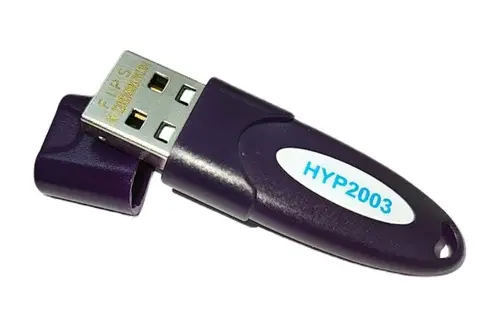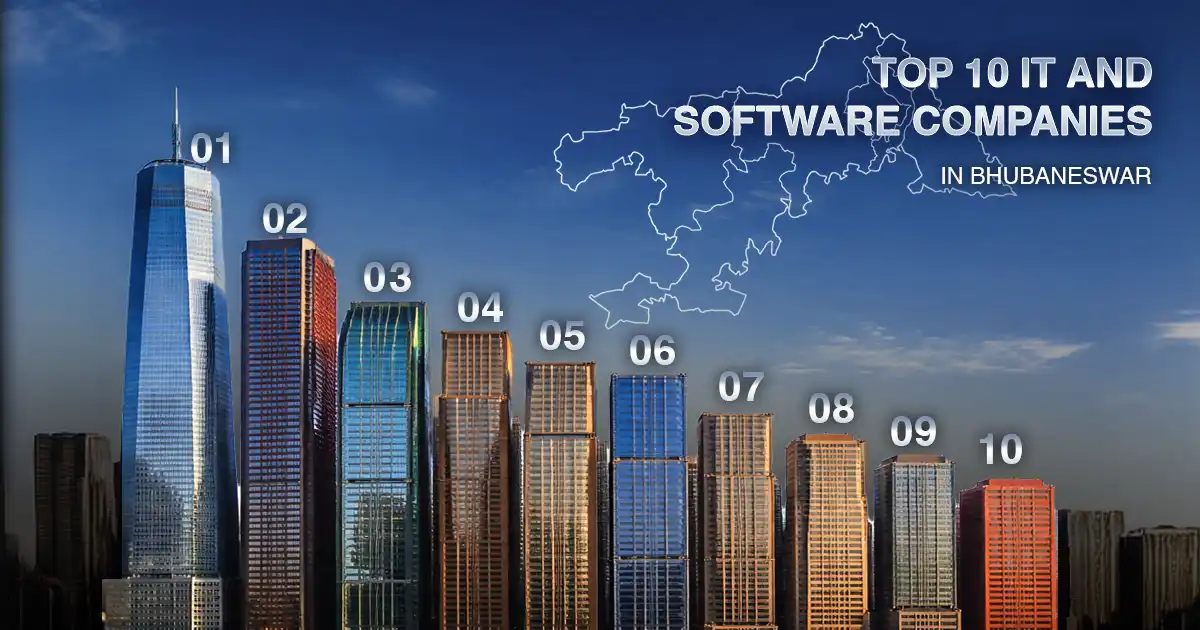
For NRIs or foreign nationals planning to start or manage a business in India, obtaining a Digital Signature Certificate (DSC) is an essential first step. Whether you are incorporating a company, filing income tax returns, or signing legal and property documents remotely, a DSC serves as your secure and legally recognized digital identity under the IT Act, 2000.
A DSC for NRI enables seamless participation in India’s online ecosystem without the need for physical presence. It ensures that your digital transactions, from MCA filings to DGFT submissions and property documentation, remain encrypted, tamper-proof, and legally binding. This not only enhances convenience but also safeguards your data and identity from unauthorized use. It is a critical aspect for NRIs and foreign nationals handling sensitive documentation from overseas.
In this comprehensive guide, foreigners and NRIs alike can gain clarity on how to get a Digital Signature Certificate (DSC) in India, from eligibility, types, and application process to document requirements, cost, and common challenges. It will also explain how to stay compliant while managing your Indian affairs efficiently and securely.
What is a Digital Signature Certificate (DSC) and Why do NRIs & Foreign Nationals Need It?

A Digital Signature Certificate (DSC) is an electronic signature that authenticates the identity of an individual or organization in digital transactions. In India, licensed Certifying Authorities (CAs) such as eMudhra, Capricorn, Sify, NSDL, and VSign issue DSCs under the supervision of the Controller of Certifying Authorities (CCA) (cca.gov.in ), as defined in the Information Technology Act, 2000. These certificates act as a legally recognized means of verifying one’s digital identity for e-filing, online document signing, and secure digital transactions across government and corporate platforms.
A DSC works on the principle of public-key cryptography, which uses a pair of keys, one private and one public. The private key, securely stored on a USB token or device, is used for signing, while the public key verifies the signature. Unlike handwritten signatures, digital signatures use encryption to ensure authenticity and security.
Example: When registering a Private Limited Company or LLP in India through the MCA (Ministry of Corporate Affairs) portal, directors and authorized signatories must use their DSC to digitally sign incorporation documents such as the SPICe+ form, ensuring authenticity and legal validity.
Why NRIs and Foreign Nationals May Need a DSC in India?
A DSC for NRI or foreign nationals enables individuals living outside India to manage their Indian financial, legal, and business activities remotely. It eliminates the need for physical presence, allowing secure, paperless, and time-efficient participation in India’s e-governance systems.
Here are some key use cases where NRIs and foreign nationals may require a DSC:
- MCA E-Filings: For directors, company secretaries, or authorized representatives filing e-forms with the Ministry of Corporate Affairs (MCA).
- Income Tax Filings: For e-filing income tax returns, audits, or other financial compliance submissions in India.
- Company/LLP Registration: When establishing or managing an Indian business entity, serving as an authorized signatory, or executing corporate documents.
- E-Tendering and E-Procurement: Required for participating in government tenders or procurement portals (Class 3 DSC).
- Property or Legal Transactions: To digitally sign property sale deeds, contracts, or affidavits while residing abroad.
- Banking & Financial Authorizations: Needed to authorize online banking transactions, fund transfers, or financial agreements with Indian banks or institutions.
- DGFT (Import-Export): For renewing or obtaining an Import-Export Code (IEC), filing DGFT applications, and digitally signing trade documents.
Benefits:
- Eliminates the need for physical presence in India.
- Ensures faster, more efficient processing of official documents.
- Maintains full compliance with Indian e-governance and IT laws.
- Enhances trust and data protection in all digital dealings.
In essence, obtaining a digital signature for foreign nationals bridges the gap between overseas residency and Indian regulatory requirements, enabling secure, remote, and legally recognized digital operations.
Types and Classes of DSC for NRIs and Foreign Nationals
Digital Signature Certificates (DSCs) are classified based on their security level and purpose. Currently, the Class 3 DSC is the standard for both NRIs and foreign nationals after the merger of Class 2 and Class 3 by the CCA.
- Class 2 DSC (Discontinued): Earlier used for basic e-filings and authentication, now merged with Class 3.
- Class 3 DSC (Current Standard): It offers the highest security and is required for major online filings and transactions, including company registration, income tax filing, e-tendering, and legal documentation.
For NRIs, identity verification for Class 3 DSC can be conveniently completed through remote video verification.
Which Class Do NRIs and Foreign Nationals Need?
Since NRIs and foreign nationals often handle legal, financial, or business-related tasks in India remotely, Indian authorities require a DSC that matches the necessary level of security and authentication.
- For Business, Corporate, and Legal Filings: A Class 3 DSC is usually mandatory for NRIs and foreign nationals acting as directors, shareholders, or authorized signatories in Indian entities.
- For Basic Filings or Personal Use: In cases of simpler submissions such as income tax return filing or document authentication, a Class 2 DSC (merged standard) may suffice.
Therefore, NRIs and foreign nationals are strongly advised to obtain a Class 3 Digital Signature Certificate, as it is universally accepted across major Indian government portals like MCA, Income Tax, DGFT, and GeM. While both classes offer authentication, Class 3 DSC ensures full compliance, wider usability, and avoids compatibility issues across various e-governance platforms.
Validity Period of a DSC
Digital Signature Certificates are generally issued with a validity of 1, 2, or 3 years, depending on the Certifying Authority. Among these, a 2-year validity is the most preferred option, offering an ideal balance between convenience and renewal cost.
Once the validity expires, you must renew the DSC to continue using it for signing or verification. You can complete the renewal process online through the same Certifying Authority that issued the original DSC. However, you may need to submit updated identification documents and undergo re-verification, such as video or online verification, as part of the renewal.
Eligibility: Who Can Apply for a DSC?
A DSC can be issued to both individuals and organizations, including those residing or operating outside India, provided they meet the required identity verification and documentation standards.
Here’s a detailed look at who can apply for a DSC for an NRI or a foreign individual:
1. Non-Resident Indians (NRIs)
Indian citizens residing abroad, whether temporarily or permanently, are eligible to apply for an NRI DSC.
- They must hold a valid Indian passport as proof of nationality.
- A current overseas address must be provided, supported by address proof such as a utility bill or residence permit.
- The DSC enables NRIs to handle activities such as company incorporation, income tax filings, property transactions, and legal documentation in India without being physically present.
2. Persons of Indian Origin (PIOs) and Overseas Citizens of India (OCIs)
PIOs and OCI cardholders, individuals of Indian ancestry who are citizens of another country, are also eligible to apply for a DSC.
- They can use their OCI/PIO card and foreign passport for identity verification.
- The DSC allows them to digitally sign contracts, participate in business dealings, or authenticate documents for investments and property management in India.
3. Foreign Nationals (Non-Indian Citizens)
A DSC for foreign individuals can be issued to any non-Indian citizen who is directly or indirectly associated with Indian entities.
- This includes directors, authorized representatives, consultants, or employees working with Indian companies, subsidiaries, or joint ventures.
- Valid passport, visa, and proof of address (attested or apostilled as per international norms) are required.
- Such certificates are often used for MCA filings, DGFT submissions, or contractual agreements involving Indian organizations.
4. Foreign Organizations
Foreign companies or institutions operating in India, or those participating in Indian tenders and regulatory processes, can also obtain a DSC through their authorized signatory.
- The authorized representative must provide valid authorization letters, company registration documents, and identity proofs.
- This ensures that the organization can digitally sign and authenticate legal, tax, or business documents with Indian authorities.
5. Exclusions and Special Considerations
- Minors and individuals lacking legal capacity cannot apply for a DSC.
- OCI cardholders are treated similarly to NRIs for DSC issuance, provided they submit valid identity and nationality proofs.
- Applicants from certain countries may need additional verification or notarization based on the Certifying Authority’s policy and international compliance standards.
Special Requirements for Foreign Nationals vs Indian Residents
While the process of obtaining a DSC is largely similar for both Indian residents and foreign nationals, NRIs and foreign applicants must fulfill certain additional verification requirements to validate their identity and address:
- Attested Identity Proofs: You must notarize or apostille documents such as a passport, overseas address proof, and visa/residency permit according to the Hague Convention. In countries outside the Convention, the Indian Embassy or Consulate can attest to them.
- Remote Verification: Since you do not need to be physically present in India, authorities verify your identity through video KYC or online validation via authorized platforms.
- Country-Specific Guidelines: Some countries may have additional verification or documentation requirements to comply with international authentication standards.
Documents Required for NRIs and Foreign Nationals
NRIs and foreign nationals must submit verified identity and address proofs as per Indian and international norms. Here’s a quick checklist of documents required for DSC of NRI:
1. Identity Proof: A valid passport is mandatory for all applicants. It must be attested or notarized by the Indian Embassy, Consulate, or an authorized notary. The passport should display the applicant’s full name, photograph, nationality, signature, and validity period.
2. Address Proof: Applicants must provide proof of their current overseas address, such as a:
- Utility bill or bank statement
- Residence permit or driving licence
All address proofs must be attested or apostilled, depending on the country of residence.
3. Visa or Residency Details: If living in India, submit a valid visa and residence permit.
If residing abroad, provide overseas residency proof such as a residence card or work permit.
4. Passport-Size Photograph: A recent passport-size color photo is required for identification and will appear on the DSC.
5. For Organizations or Foreign Companies: If applying on behalf of a company, include:
- Certificate of Incorporation or Business Registration
- Authorization Letter for the signatory
- Attested ID proof of the authorized person
6. Attestation / Apostille Note: Documents issued abroad must be authenticated by:
- Apostille (if from Hague Convention countries), or
- Indian Embassy/Consulate attestation (for others).
If not in English, a certified English translation is required.
Step-by-Step Process to Apply for a DSC (for NRIs and Foreign Nationals)
Obtaining a DSC from outside India is now fully online, enabling NRIs and foreign nationals to sign and e-file documents securely without being in India. At RegisterKaro, we simplify the entire process by coordinating with licensed Indian CAs and managing all verifications, documentation, and issuance for you.
Step 1: Choose a Licensed Certifying Authority (CA)
- The first step is to select a government-authorized CA in India, such as eMudhra, Capricorn CA, or Vsign.
- The Controller of Certifying Authorities (CCA) licenses these CAs under the IT Act, 2000, to issue DSCs that are legally valid across Indian e-governance platforms.
When you apply through RegisterKaro, our experts handle CA selection and documentation submission on your behalf, ensuring compliance and accuracy.
Next, you’ll need to choose the class and validity period of your DSC to match your requirements.
Step 2: Select Class and Validity Period
You must select the appropriate DSC Class and its validity period (1, 2, or 3 years):
- Class 3 DSC – Mandatory for directors, shareholders, authorized signatories, and those involved in e-tendering or business registrations.
- Class 2 DSC (merged standard) – Sufficient for personal or basic tax filings.
NRIs and foreign nationals typically require a Class 3 DSC for broad usability. Once you select the class and duration, securely upload your verified identity and address proofs through RegisterKaro’s portal.
After selecting the class and validity, the next step is to complete identity verification to ensure the DSC is issued safely.
Step 3: Complete Identity Verification
Every DSC for foreign nationals or DSC for foreign individuals must go through a formal identity verification process to prevent misuse.
Verification can be done via:
- Video verification – Record a short video confirming your identity and intent.
- In-person verification (IPV) – Conducted by authorized CA representatives.
- Aadhaar e-KYC – Only applicable if the applicant has an Aadhaar-linked mobile number.
RegisterKaro coordinates the verification process and ensures your documents meet CCA and embassy attestation standards when required.
Once your identity is verified, you can proceed to fee payment and certificate issuance.
Step 4: Payment of Fees and Issuance of DSC
- Once verification is approved, you can make a payment online through RegisterKaro’s secure payment gateway.
- After payment, the CA issues your Digital Signature Certificate for foreign directors or individuals.
- You’ll also receive a USB token (if applicable), which securely stores your DSC and allows safe digital signing of documents.
After issuance, the next step is downloading and installing your DSC for secure use.
Step 5: Download and Installation
- After receiving your DSC credentials, you can download and install the certificate using the CA’s driver and software.
- The token-based setup ensures your DSC remains encrypted and tamper-proof.
- With RegisterKaro’s assistance, installation and configuration can be done remotely, making it quick and user-friendly for NRIs and foreign nationals.
Finally, remember to renew your DSC before it expires to maintain uninterrupted access.
Step 6: Renewal of DSC
- A DSC remains valid for 1 to 3 years, depending on the selected plan. Once expired, you can renew your DSC through RegisterKaro by logging into your account, submitting updated identity proof, and completing a quick re-verification.
- The renewal process is simple, digital, and ensures continued access to MCA, DGFT, and income tax e-filing systems.
- Foreign companies’ DSCs are issued in the name of the authorized representative, not the entity itself.
If you are in India and wish to apply for a DSC, check out our detailed guide on how to get a Digital Signature Certificate.
How long is a DSC for NRIs and Foreign Nationals Valid, and What Purposes Can it serve?
A DSC is valid for 1, 2, or 3 years, depending on your chosen Certifying Authority (CA). Once it expires, you can renew online through trusted platforms like RegisterKaro by updating your documents and completing quick identity verification.
Common Uses: A Digital Signature Certificate for NRIs and foreign nationals can be used for:
- MCA filings – Company incorporation, director KYC, annual returns.
- Income tax e-filing – Signing returns or audit reports.
- GST filings – Verifying and signing GST forms.
- E-tendering & procurement – Participating in government contracts.
- Legal/property documents – Secure remote signing of agreements.
RegisterKaro ensures your DSC works seamlessly across all major Indian e-governance portals, helping you sign using DSC for any official or legal purpose in India.
Token Formats: DSCs come in two forms:
- USB Token – A hardware device storing your signature securely.
- Software Token – Cloud or PC-based, allowing remote access.
Both options offer strong encryption and tamper-proof security for safe international use.
A DSC for foreign nationals issued by an approved Indian CA is legally valid under the Information Technology Act, 2000. Documents signed with it hold the same legal value as handwritten signatures in India.
What Common Challenges Do NRIs and Foreign Nationals Face While Applying for a DSC?
Applying for a Digital Signature Certificate (DSC) from abroad is convenient but comes with a few challenges for NRIs and foreign nationals. Being aware of these can help ensure a smooth and error-free process when obtaining a DSC for NRI or foreign individuals.
1. Document Attestation Issues: Foreign-issued ID and address proofs often need notarization, apostille, or embassy attestation. Missing or incorrect attestation can lead to rejection.
2. Token Delivery Challenges: Some Certifying Authorities do not ship USB tokens overseas or charge extra for courier delivery.
3. Selecting the Correct Class: Choosing the wrong DSC class (Class 2 vs. Class 3) can delay filings.
4. Compatibility and Setup: Drivers for DSC tokens may not work on all systems.
5. Security and Renewal: Losing your DSC token or missing renewal deadlines may require reissuance.
While applying for a DSC for NRI or foreign individuals, key challenges include document attestation, token logistics, and technical setup. With RegisterKaro, we guide you at every step to ensure your DSC is issued quickly, securely, and in full compliance.
How Much Does a DSC for NRIs and Foreign Nationals Cost?
The cost of obtaining a DSC for NRI or Foreign Directors depends on factors like the class of DSC, validity period (1–3 years), Certifying Authority (CA), and whether it includes a USB token or digital delivery option.
Typically, a Class 3 DSC with 2-year validity costs around ₹2,000–₹4,000, though prices vary by provider and verification requirements.
Example: Authorized CAs and platforms like All India ITR offer DSC plans for foreign citizens and NRIs at similar rates, with options for quick processing and token shipping.
Before applying, make sure to:
- Review hidden costs such as courier, renewal, or token replacement charges.
- Select a licensed CA recognized by the CCA, Government of India.
Choosing a trusted platform like RegisterKaro ensures transparent pricing, reliable verification, and DSC acceptance across all major Indian government and business portals.
Why Choose RegisterKaro for Your DSC as an NRI?
Getting a DSC for NRI can seem complex with verification, attestation, and cross-border documentation, but RegisterKaro makes it simple, fast, and fully compliant.
Here’s why thousands of NRIs and foreign applicants trust RegisterKaro for their Digital Signature Certificates:
- End-to-End Assistance: From document review to attestation and submission, RegisterKaro handles every step of the DSC process seamlessly.
- Expert Guidance: Our specialists help you choose the right DSC class (Class 3 or DGFT) based on your intended usage, whether for company filings, GST, or e-tendering.
- Fast & Reliable Issuance: We work directly with licensed Certifying Authorities (CAs) to issue your DSC quickly, often within 1–2 working days.
- Support for Global Clients: Whether you’re in the USA, UK, UAE, or Singapore, RegisterKaro provides secure document verification and digital token delivery options for NRIs worldwide.
- Post-Issuance Support: Our technical team assists with DSC installation, renewal reminders, and token compatibility for all major operating systems.
When you apply through RegisterKaro, the process is straightforward: Consultation → Document Upload → Verification → Issuance → Installation & Support.
Conclusion
Obtaining a DSC for foreign nationals is essential for managing legal, tax, and business responsibilities in India, all from the comfort of your location abroad. With a valid DSC, you can securely sign documents, file returns, and participate in government or corporate transactions without needing to be physically present. It ensures seamless, legally recognized, and fully encrypted digital operations across Indian e-platforms.
If you’re an NRI, OCI, or foreign director looking for quick, compliant, and hassle-free DSC registration, RegisterKaro is your trusted partner. Our experts guide you through every step, from document attestation to final installation, ensuring accuracy, security, and end-to-end support.
Get started today at RegisterKaro.in and simplify your DSC application process from anywhere in the world.
Frequently Asked Questions
Even if you’re not directly running a business, you may still need a DSC for NRI for several legal and financial activities in India. NRIs often need a digital signature certificate to file income tax returns, sign legal documents, register property, or authorize business transactions. It acts as your electronic identity and allows you to sign official documents digitally without being physically present in India. Having a DSC also ensures faster, paperless authentication with government portals like MCA, GST, and DGFT.




